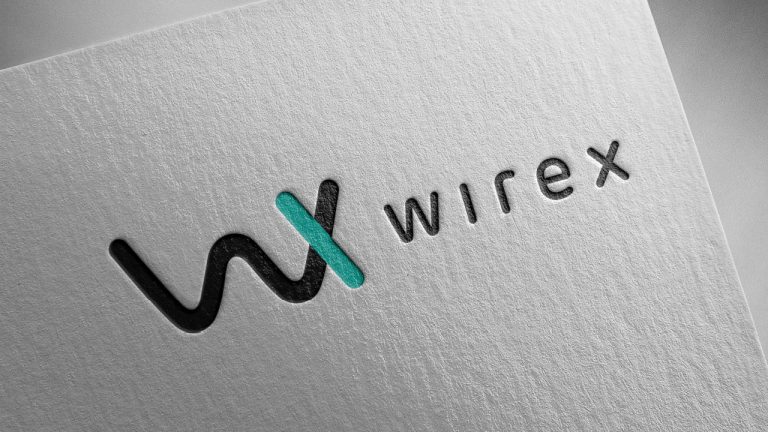 After dropping below $26,000 per unit, the price of bitcoin, the leading digital asset by market capitalization, is still up 9.6% since last week. However, its price has decreased by 6.5% in the last 24 hours. Out of the 7,316 companies, crypto assets, precious metals, and exchange-traded funds worth more than $82 trillion in value, […]
After dropping below $26,000 per unit, the price of bitcoin, the leading digital asset by market capitalization, is still up 9.6% since last week. However, its price has decreased by 6.5% in the last 24 hours. Out of the 7,316 companies, crypto assets, precious metals, and exchange-traded funds worth more than $82 trillion in value, […]
Visa's head of crypto has pushed back against the notion that the credit card giant is getting cold feet because of the bear market.
Crypto cycles aren’t for the faint-hearted. As the industry continues to evolve from the cypherpunks into the mainstream, we can expect a lot of growing pains. The dumpster fire that was 2022 may have scared off many companies interested in exploring the sector. Case in point: Visa and Mastercard’s embrace of crypto may have hit a snag thanks to the bear market and unclear regulations.
According to a new report by Reuters, the credit card giants are halting the launch of certain crypto products until market conditions and the regulatory environment improve. Cuy Sheffield, who heads Visa’s crypto division, wasn’t pleased with the report, reassuring the market that Visa is very much committed to seeing through its crypto ambitions.
This week’s Crypto Biz explores the latest reports around Visa and Mastercard, Jack Dorsey’s decentralized Twitter alternative, and Goldman Sachs’ apparent need for more digital asset professionals.
Credit card giants Visa and Mastercard will delay the launch of new crypto partnerships due to the bear market and murky regulatory conditions, according to a Feb. 28 report by Reuters. The companies are hesitant to launch new crypto partnerships following high-profile bankruptcies in the sector, like FTX, BlockFi, Celsius, Voyager, Genesis etc. “Recent high-profile failures in the crypto sector are an important reminder that we have a long way to go before crypto becomes a part of mainstream payments and financial services,” a Visa spokesperson said. However, Visa’s crypto head later clarified that the company continues to “partner with crypto companies to improve fiat on and off-ramps.”
1/ This story is inaccurate as it pertains to Visa, here’s the reality https://t.co/oAEaj7MsX0
— Cuy Sheffield (@cuysheffield) February 28, 2023
Jack Dorsey is embracing decentralized social networks with the private beta launch of Bluesky — a so-called decentralized Twitter alternative. Bluesky hit Apple’s app store as an invite-only app, allowing key persons to try out the new platform. An early peek at Bluesky reveals an interface that very much resembles Twitter. The major difference between the two is that Bluesky claims to be “decentralized,” which means it operates on independently run servers rather than centralized servers controlled by a single entity. It’s not entirely clear if Bluesky will have Bitcoin (BTC) integration, something Dorsey feels very strongly about. In June 2022, Cointelegraph reported that Dorsey was building “Web5” powered by Bitcoin.
Watch what they do, not what they say. Amid continued layoffs in the digital asset sector, multinational investment bank Goldman Sachs has not closed the door on hiring more crypto professionals. According to Goldman’s digital asset lead Matthew McDermott, the bank remains “hugely positive” on exploring blockchain applications, which may require more hires. Goldman Sachs’ digital asset unit currently has 70 people and likely won’t be affected by the bank’s job cuts. It feels like only yesterday that Goldman Sachs was hyper-critical of crypto. Now, it’s fully embracing the sector and its innovative potential.
Last week, Crypto Biz told you that Coinbase has a lot at stake. This week, CEO Brian Armstrong reiterated that Coinbase’s staking products do not constitute securities and should not fall under the United States Securities and Exchange Commission’s (SEC) enforcement action. “[We] really just are providing a service that passes through those coins to help them participate in staking, which is a decentralized protocol,” he said, referring to the exchange’s staking products. The SEC has already thrown the book at crypto exchange Kraken for its staking services. Will the regulator buy Coinbase’s argument? Only time will tell.
WATCH: Coinbase CEO Brian Armstrong joins Bloomberg TV after the biggest US cryptocurrency exchange posted a $557 million loss and saw revenue tumble 75% in the fourth quarter https://t.co/zEfQ0mSMe0 https://t.co/dJAkxCtft8
— Bloomberg Markets (@markets) March 1, 2023
It’s hard to get positive mainstream coverage of crypto these days. This week, Binance CEO Changpeng Zhao responded to a scathing article about his exchange’s business practices. Meanwhile, the Solana network experienced yet another outage. This week’s Market Report breaks down the FUD around Binance, and discusses what’s potentially in store for Solana. You can watch the full replay below:
Crypto Biz is your weekly pulse of the business behind blockchain and crypto, delivered directly to your inbox every Thursday.

The head of Visa’s crypto department is denying reports that the US payment giant is pausing its digital currency efforts. Cuy Sheffield, Visa’s head of crypto, tells his Twitter followers that the recent uncertainty in the crypto sector is not prompting the company to step away from digital currencies, as was reported earlier this week. […]
The post Visa Executive Says Payments Giant Not Backing Away From Crypto, Despite Recent Reports appeared first on The Daily Hodl.

Holding gains above $1,750 remains a challenge for ETH, but derivatives data shows traders believe future downside moves will be limited to the most immediate price support.
The price of Ether (ETH) declined 9.8% between Feb. 19 and Feb. 25 after the price resistance at $1,725 proved stronger than expected. Still, the correction was insufficient to break the 6-week-long ascending channel and did not cause Ether derivatives metrics to turn bearish.

Ether's price resilience can be partially explained by the operational failure of some of its smart contract blockchain competitors. For instance, Solana (SOL) faced a 20-hour-long outage on Feb. 25, which was only resolved after a network upgrade coordinated by validators. The network restart also involved purging some of the latest slots, although Solana developers said that "no confirmed user transactions were rolled back or impacted."
NEM (XEM) experienced a "chain halt" on Feb. 27 that lasted for 15 hours, causing multiple exchanges to halt deposits and withdrawals and developers promised to release an update to prevent further misbehavior. Curiously, the latest post from the official NEM account on Twitter, excluding a Merry Christmas greeting, was a "Please Stand By" image posted in July 2022.
The regulatory environment remains shady for cryptocurrencies, and the latest victims were global payment processing companies Visa and Mastercard. According to a Reuters report published on Feb. 28, the firms are delaying the launch of new partnerships with crypto firms until market conditions improve and a more transparent regulatory framework is established.
In more positive news, Ethereum's Sepolia testnet was successfully hard forked on Feb. 28 in preparation for the Shanghai upgrade. The much-anticipated mainnet update expected for March should finally allow validators to withdraw their staked Ether from the Beacon Chain. Developers are now prepping the Goerli testnet to enter a similar stage.
Let's look at Ether derivatives data to understand if the $1,560 support retest on Feb. 25 has impacted crypto investors' sentiment.
The annualized two-month futures premium should trade between 5% and 10% in healthy markets to cover costs and associated risks. However, when the contract trades at a discount (backwardation) versus traditional spot markets, it shows a lack of confidence from traders and is deemed a bearish indicator.

The chart above shows that derivatives traders became slightly bullish as the Ether futures premium (on average) flirted with the 5% threshold on Feb. 26. More importantly, it shows resilience even as Ether price declined by nearly 10% between Feb. 19 and Feb. 25.
The increased demand for leverage longs (bulls) does not necessarily translate to an expectation of positive price action. Consequently, traders should analyze Ether's options markets to understand how whales and market makers are pricing the odds of future price movements.
The 25% delta skew is a telling sign when market makers and arbitrage desks are overcharging for upside or downside protection.
In bear markets, options investors give higher odds for a price dump, causing the skew indicator to rise above 10%. On the other hand, bullish markets tend to drive the skew metric below -10%, meaning the bearish put options are in less demand.
Related: Vitalik Buterin says 'more still needs to be done' over high Ethereum txn fees

The delta skew flirted with the bearish 9% level on Feb. 27, signaling stress from professional traders. However, the situation improved on Feb. 28 as the index moved to 5 — indicating a similar upside and downside risk appetite.
It makes sense for fundamental analysts to avoid adding bullish positions ahead of the Shanghai upgrade, especially since Ethereum developers have a history of delaying significant network changes.
Despite the range of concerning factors, options and futures markets signal that pro traders are conservatively bullish and trust that the ascending pattern will hold. From a technical analysis standpoint, investors appear to believe that the bullish trend will continue unless Ether breaks below the channel support at $1,520.
This article does not contain investment advice or recommendations. Every investment and trading move involves risk, and readers should conduct their own research when making a decision.
The views, thoughts and opinions expressed here are the authors’ alone and do not necessarily reflect or represent the views and opinions of Cointelegraph.
 According to a recent report from sources familiar with the matter, Mastercard and Visa, the credit card and payment services giants, are halting new partnerships with cryptocurrency firms. This news comes after the collapse of several cryptocurrency ventures that offered crypto debit cards and failed due to financial difficulties last year. After the report published, […]
According to a recent report from sources familiar with the matter, Mastercard and Visa, the credit card and payment services giants, are halting new partnerships with cryptocurrency firms. This news comes after the collapse of several cryptocurrency ventures that offered crypto debit cards and failed due to financial difficulties last year. After the report published, […] Wirex, a London-based digital payments company, has announced it has become a global partner of Visa, to allow the company to bring its card services to more markets in the world. The new partnership means that Wirex will be able to offer its crypto card services to APAC and U.K. markets. Wirex Partners With Visa […]
Wirex, a London-based digital payments company, has announced it has become a global partner of Visa, to allow the company to bring its card services to more markets in the world. The new partnership means that Wirex will be able to offer its crypto card services to APAC and U.K. markets. Wirex Partners With Visa […] At the Starkware Sessions 2023 event, held at the Cameri Theatre in Tel Aviv, Israel, Starkware co-founder Eli Ben-Sasson informed the audience that the company intends to open source “key tech” linked to the Starknet Prover. During the event, the co-founder of the Ethereum scaling project stated that this marks a “significant step for scaling […]
At the Starkware Sessions 2023 event, held at the Cameri Theatre in Tel Aviv, Israel, Starkware co-founder Eli Ben-Sasson informed the audience that the company intends to open source “key tech” linked to the Starknet Prover. During the event, the co-founder of the Ethereum scaling project stated that this marks a “significant step for scaling […]
At the StarkWare Sessions 2023, Visa's Cuy Sheffield shared the company's vision for digital assets.
Payment company Visa is seeking to build a "muscle memory" to settlements, aiming to allow customers to convert digital assets to fiat currencies on its platform, according to the company's head of crypto division Cuy Sheffield at the StarkWare Sessions 2023.
"We've been testing how to actually accept settlement payments from issuers in USDC starting on Ethereum and paying out in USDC (USDC) on Ethereum. So, these are large value settlement payments.", noted Sheffield in a fireside chat at the event. Cointelegraph's team is on the ground in Tel-Aviv covering the two-day Ethereum community conference.
According to the executive, global settlement with digital assets and fiat currencies is one of the avenues that Visa is investing in. He specifically stated:
"That's been one of the areas where we want to build muscle memory. The same way that we can convert between dollars in euros on a cross border transaction, we should be able to convert between digital tokenized dollars and traditional dollars."
The payment giant has been exploring how to incorporate blockchain technology into its existing network to move money faster, but settlements still take place on the Society for Worldwide Interbank Financial Telecommunications, or SWIFT system, a not for profit cooperative society formed by European bankers with the purpose of facilitating secure and standardized transaction communication between its members.
. @cuysheffield and @visa have fell into the rabbit hole of Account Abstraction!
— Starknet-Ecosystem.com ✨ (@StarkNetEco) February 5, 2023
This is huge! pic.twitter.com/CFniLLBq5C
"We set all over Swift, so we can't move money as frequently as we'd like because there are a number of limitations that exist in those networks. And so, we've been experimenting, we publicly announced. We've been testing how to actually accept settlement payments [with stablecoins]," Sheffield explained.
Recently speaking at Visa’s annual shareholder meeting, former CEO Al Kelly briefly shared the firm’s plans for central bank digital currencies (CBDCs) and private stablecoins, claiming that "stablecoins and central bank digital currencies have the potential to play a meaningful role in the payments space, and we have a number of initiatives underway.”
Sheffield confirmed the company's view for blockchain technology and digital assets. "We're thinking a lot about how to take some of the value that visa provides on existing bank rails, with existing forms of beyond in a rebuild that on top of blockchain rails, using stable boards. If we think there are huge opportunities in that area, it just kind of stays on emerging."

The Visa-backed debit card will allow Huobi users in the European Economic Area (EEA) to pay from their crypto accounts at point of sale stations globally.
As the crypto space continues to expand into the mainstream, bridging the gap between digital currencies and fiat currency is a priority for many legacy financial institutions.
Cryptocurrency exchange Huobi announced its partnership with Solaris, a European financial services provider, to launch a crypto-to-fiat debit card.
The program, which Visa has approved, allows Huobi users to use their digital assets at the point of sale globally. Users residing in the European Economic Area (EEA) will have access to the card beginning in the second quarter of 2023.
The EEA comprises all 27 European Union member states, as well as Iceland, Liechtenstein and Norway.

Andrea Ramoino, the chief strategy officer at Solaris hinted at future developments in its partnership with Huobi in his comment.
“This is just the first step in our partnership as we look ahead to delivering more payment options to users in the EEA region and beyond."
This is not the first crypto-to-fiat card available to residents of the E.U. In 2020, Binance launched its own Visa-accredited crypto-to-fiat card, which allows Europeans to pull funds straight from their Binance accounts.
Related: Dominica works with Huobi for digital identity program
Outside of E.U. Visa has been an active proponent in bridging the crypto-fiat gap. In October 2022, Blockchain.com announced its partnership with Visa to offer a crypto debit, which is only available to residents of the United States.
Prior to the FTX scandal, it had also partnered with Visa to offer a debit card in 40 countries.
Most recently, the financial service provider worked with the fintech company ZELF, to launch an anonymous debit card with a crypto recharge. This allows users to open a checking account based in the U.S. dollar with only their name, email, and phone number.
Prior to the start of 2023, Visa also hinted at a feature that would allow users to auto-pay bills from their crypto wallet.

With the BTC price plunging more than 76% peak-to-trough, miners are struggling to keep their operations running.
Never underestimate how quickly things can deteriorate in a sector as volatile as crypto, especially in a bear market. Prices can always go lower in the depts of crypto winter and casualties can multiply overnight. 2022 has been a year of never-ending contagion; with everyone focused on Binance, high-profile Bitcoin (BTC) miners were going bust.
This week, mining company Core Scientific filed for Chapter 11 bankruptcy. Greenridge, another miner, received a $74 million debt restructuring lifeline from New York Digital Investment Group. Bitcoin is the most valuable commodity in a bear market, but miners must keep the lights on.
The news isn’t all negative on the mining front. This week, German miner Northern Data reported that it expects to generate up to $206 million in revenue from its mining operations this year. It also has no financial debt on its books, giving it more flexibility in dealing with market conditions.
This week’s Crypto Biz dissects Core Scientific’s financial troubles, FTX’s clawback warning, Celsius’ pool of potential bidders and Visa’s latest intellectual foray into crypto.
Crypto contagion has spread to the Bitcoin mining industry, with miner Core Scientific reportedly filing for Chapter 11 bankruptcy in Texas. The news came just days after a creditor offered Core Scientific $72 million to help shore up its finances amid the bear market. That deal did not go through. However, Core is said to continue its mining operations and has no plans to liquidate its remaining BTC. The company was forced to offload 9,618 BTC in April to stay operational. Other Bitcoin miners also feel the pinch and are pursuing various means to protect their operations during an extended bear market.
When you think you’ve heard all you needed to hear about Sam Bankman-Fried and FTX, new developments emerge. This week, the bankrupt crypto exchange warned that anyone who received political donations or contributions from SBF or other FTX executives could have those funds clawed back as part of a fund recovery process. This may have been triggered by some Democratic recipients coming forward and pledging to give back the now-tainted funds. Do you know who else received campaign donations from SBF? The Biden 2020 election campaign. So far, the president hasn’t signaled whether he would return the $5.2 million worth of donations SBF made to his campaign during the 2020 presidential election, but that could change. This is a story worth monitoring.
Sharing our press release just issued: FTX Debtors Announce Process for Voluntary Return of Avoidable Payments https://t.co/l57F7zgKPJ
— FTX (@FTX_Official) December 19, 2022
Bankrupt crypto lender Celsius has amassed a long list of potential buyers for its remaining assets, raising cautious optimism that it would be able to sell its retail platform and mining businesses at a competitive price. Since September, more than 125 parties have been contacted and 30 potential bidders have emerged. Celsius’ latest presentation, part of its bankruptcy proceedings, suggested that the company’s valuation stood at $2.6 billion as of Nov. 25. The company has a $1.2 billion hole in its balance sheet. In other words, there is $5.5 billion owed to users versus only $4.3 billion in assets.
For all the fear, uncertainty and doubt plaguing the cryptocurrency market, we can always rely on Visa for positive reinforcement. The crypto-friendly credit card giant recently proposed a business solution to streamline digital asset payments. While still in the thought-experiment phase, Visa imagines an auto-pay feature enabling crypto users to pull funds directly from their Ethereum-powered self-custodial wallets. They can then use these funds to make auto payments on their telephone bills, Netflix subscriptions and other recurring charges. It’s a highly technical proposal, but we dissected it in lay terms to give you the full scoop.
Before you go: Is Binance insolvent or is it just FUD?
How far will the crypto contagion spread? As centralized platforms fall by the wayside, culminating in the collapse of FTX in November, more and more people are shifting their attention to Binance. Warranted or not, Binance has been at the center of controversy over concerns about its financial health and rumors that the exchange would become the target of a U.S. money laundering lawsuit. In this week’s Market Report, I sat down with Marcel Pechman and Joe Hall to discuss any merit to the Binance FUD. You can watch the full replay below.
Crypto Biz is your weekly pulse of the business behind blockchain and crypto delivered directly to your inbox every Thursday.